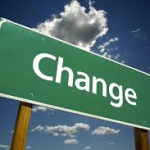“Yesterday I was clever, so I wanted to change the world. Today I am wise, so I am changing myself.” – Rumi
Last week in this space, the topic was change-related (no surprise). The idea was that you can’t just wish or hope for things to change. You actually have to change them yourself. Be methodical, be dogged, and above all, actually take action.
As leaders, we’re expected to steer that action. Whatever part of the organization that needs change, we’re supposed to help drive it. Maybe it’s process, maybe it’s how we produce whatever it is we produce, maybe it’s something people-related. Whatever it is, we’re supposed to be actively working to fix whatever ails the group.
But what about us? What about us as leaders? How often do you sit down and think about what you need to change about you? Most businesses have some kind of strategic planning session or sessions where the key people sit around and talk about what needs to change or evolve in the business. Do you ever do something similar regarding yourself as a leader?
Part of the problem is that, as leaders, we don’t always get much feedback on what those things are about us that need to change. It’s pretty easy to go through your career as a leader with a lot of blind spots that no one’s pointing out. Who in your organization – or outside of it – can see those blind spots? Do you ever ask those people for feedback? Why not?
Another challenge is the idea that, once we’re a leader, we’ve arrived. We work to constantly grow and learn and develop for years, and then when we get to whatever leadership role we’ve worked for, we just level off. Too many leaders spend the last half of their careers on a developmental plateau. What are you trying to learn right now? What skill or capability needs improvement?
Some leaders would say that they simply don’t have time for self-development, but I would argue that it’s more of a prioritization or delegation issue than a lack of time. I have yet to meet a leader who couldn’t free up enough time for quality self-development simply by eliminating things from their schedule that don’t need to be done.
As difficult as it is to change our organizations, it can be more difficult to change ourselves. Make sure you’re taking time regularly to think about where you need to change yourself. Maybe ‘regularly’ means monthly or quarterly, or at the very least annually. Whatever the case, don’t get so caught up changing everything around you that you forget to work on YOU.





